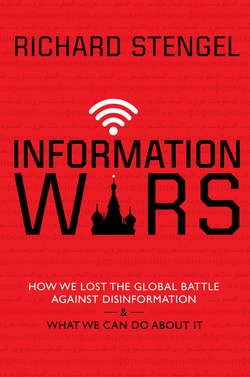Читать книгу Information Wars - Richard Stengel - Страница 29
На сайте Литреса книга снята с продажи.
The Ben Cave
ОглавлениеThere’s nothing grand about the West Wing. The offices are small and dark, the hallways narrow, the entrance areas unprepossessing. It’s pretty underwhelming. I was there during my first week for my initial meeting with Ben Rhodes. Ben’s office was a grotto, a long, narrow cave with no windows. He was adjacent to the Navy Mess, about a 15-second walk from the Oval Office.
Ben was Obama’s foreign policy boy wonder, his chief speechwriter on foreign policy, and, in some ways, his foreign policy alter ego—though Ben was later criticized in the press for saying that himself. Ben’s official title was Assistant to the President and Deputy National Security Advisor for Strategic Communications and Speechwriting. Everyone at State told me he was my equivalent at the White House, but that was a disservice to Ben. He would become my closest and most reliable touch point at the White House, and from first to last, he was generous and supportive.
Ben is a cool presence. Pretty much all Obama’s people were. It’s not that he avoids looking you in the eye, but he often looks away or up or down when he is speaking. This seems to be in part because he really does concentrate while he’s talking, rather than just rattling off practiced phrases, as lots of people in Washington do. He had already been working for President Obama for five years, and I was the new kid. When you’re in government, you look at every new person as someone who can potentially advance or set back your agenda.
He wanted to talk about two topics: the BBG and counter-ISIS. BBG was the acronym for the Broadcasting Board of Governors—the truly dreadful name for what was also known as U.S. International Broadcasting, made up of the Voice of America, Radio Free Europe and Radio Liberty, Radio Free Asia, Middle East Broadcasting, and the Office of Cuba Broadcasting. These legacy media organizations were originally part of the United States Information Agency and then became quasi-independent by virtue of the 1999 legislation, which also created my job.
BBG had a $750 million budget and about 3,500 employees, which made it one of the largest news organizations in the world. But few Americans knew about it. This was in part because of Smith-Mundt, which mandated that it be directed abroad (Voice of America broadcast in more than 60 languages), and in part because it didn’t do much journalism that broke through in the U.S. It was also cursed with a contradictory mission: it was government-supported independent journalism. If that sounds strange, that’s because it is. Its employees saw themselves exclusively as journalists, but they were also tasked with creating content “consistent with the broad foreign policy objectives of the United States,” as its enabling legislation puts it. Hmm, how do you create objective independent journalism consistent with American foreign policy objectives? That’s a tough one. Ben said President Obama was interested in U.S. international broadcasting and wanted to see what more we could do with it. “It’s a lot of money,” he said. The President, Ben added, would like to sit down with me and Jeff Shell, the new chairman of the BBG, and talk about it. Ben said I should get my thoughts together and we’d schedule a meeting.
The other place where Ben thought he could help was counter-ISIS messaging. He supported CSCC, and had an idea on how to enlarge the platform. He said two Defense Department “influence” sites were being disbanded because of budget cuts. His idea was that DOD could essentially hand them over to State, and we would run them and pay for them.
Ben rummaged around his desk and found a glossy brochure about the sites, prepared by the Defense Department. The pamphlet described them as “cost effective, 24/7 influence with proven impact.” It felt a little like he was a realtor trying to sell me that dark apartment on the second floor. He explained that their content had to say that they were supported by the Defense Department. Or, if we took them, the State Department. But the only way you’d find this out was if you clicked on the “About Us” link. Here’s what the brochure said about that: “Less than 1% of readers click on the ‘about us’ link. Extremely limited loss of readership due to DoD attribution.” Ben said the sites cost almost nothing. How much was nothing? I asked. One cost about $4 million a year to run and the other $6 million.
Ben, I said, that was three times the budget that I had for all of CSCC.
That’s a problem, he said.
I wondered why I needed to buy something from DOD. The Defense Department had more people in military bands than the number of foreign service officers. For them this amount of money was just the nickels left on the table.
